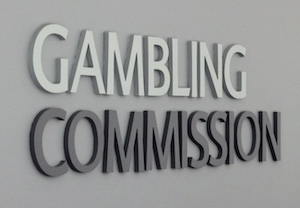Gambling Commission chief executive Andrew Rhodes has urged a greater degree of care” from some when referencing gambling statistics amid a reported increase in the “wholly unacceptable” misuse of data to “create an inaccurate picture.”

Rhodes said “multiple individuals and organisations,” including some operators, media outlets and trade bodies, have been at fault, with statistics on the rate of problem gambling and the conflation of problem gambling and gambling-related harm most commonly misused in recent months.
Some charities, sporting venue owners and other commentators have also been found to be at fault, Rhodes added.
He said in an open letter that the Commission is “very concerned at the significant increase in the misuse of statistics around gambling as different parties seek to make persuasive arguments for or against different proposals.”
“The Commission has even received (or has been copied into) complaints about the misuse of statistics by another party, where the complainant themselves has misused statistics in order to press their complaint,” Rhodes said.
“Others have sought to rely on data which the authors have said is not reliable enough to draw those conclusions.
“For example, it has been stated that ‘99.7 per cent of people who gamble do so without being harmed’ and variations on this theme such as arguing that ‘only 0.3 per cent of gamblers are harmed.’ This is not true and misrepresents the statistics.
“The 0.3 per cent figure typically relates to the Gambling Commission short form PGSI screen, which is a shorter version, as the name suggests, of the longer PGSI screen. Between March 2019 and March 2023, this screen has produced a range of between 0.2 per cent and 0.6 per cent of the those aged 16 or older in the population experiencing problem gambling.”
Rhodes said it is also “inaccurate and misleading” to suggest that the 0.3 per cent figure “represents those ‘at risk’ from problem gambling” while cracking down on arguments that “certain types of gambling, such as betting on certain sports, are ‘less risky’ and therefore must have a problem gambling rate lower than the national picture.”
The open letter comes amid debate over the UK’s wide-reaching white paper on gambling reform, which was published in April after lengthy delay and backlogs due to governmental changes.
The first set of consultations was published this summer, with another tranche set for the autumn.
Another issue highlighted by Rhodes was comparisons “to argue things have moved in one direction or another,” which is “not an unreasonable thing to do” at “face value” but is “when it is not appropriate to do so, especially when authors have placed those caveats on their reports.”
“The debate around gambling is often a fierce one, but nobody is well-served by statistics being misused to further an argument,” Rhodes concluded.
“I therefore ask anyone commenting on this area to take a greater degree of care to ensure they are using evidence and statistics correctly, accurately and in the proper context and with any necessary caveats applied.”